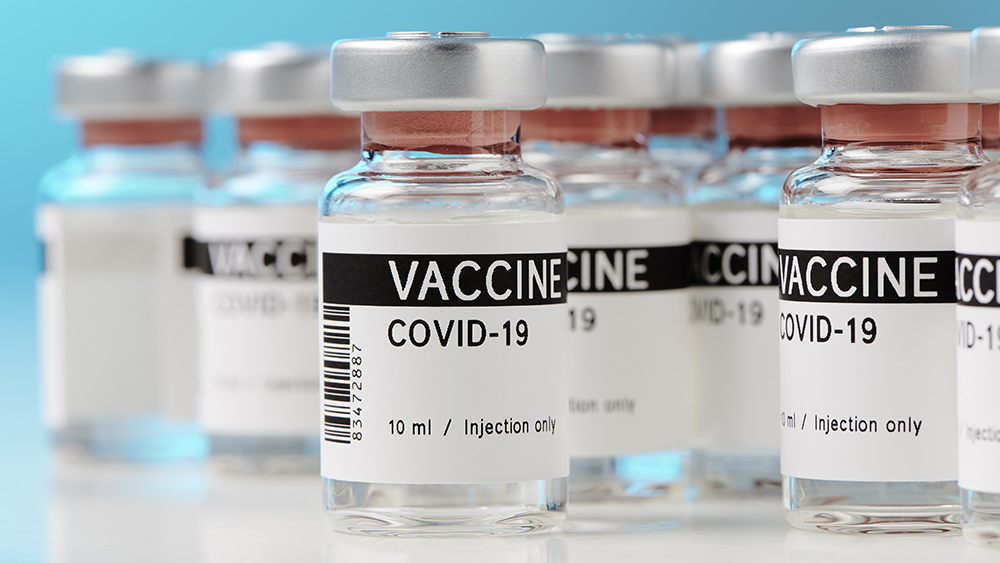Japanese black vinegar found to be effective against metabolic syndrome
10/02/2020 / By Evangelyn Rodriguez

The Japanese black vinegar known simply as “kurozu” is a mild-tasting vinegar that has been brewed by artisans for more than 200 years in the town of Fukushima, Japan. Also called amber rice vinegar, this condiment is produced by slowly fermenting a mixture of rice and water in black ceramic jars using a microbe called Aspergillus oryzae. This expert fermenter is the same mold used to produce miso, sake and soy sauce, all of which are widely used in traditional Japanese cuisine.
Fermentation is an age-old method of preserving foods. It occurs when microorganisms are allowed to break down glucose and other molecules in foods, resulting in chemical changes that protect them from spoilage. But aside from prolonging their shelf life and enhancing their taste, researchers have found that fermentation also adds nutrients to foods and multiplies their health benefits. For instance, fermented vegetables contain vitamin B12, a nutrient mainly found in animal products.
Fermented foods also benefit the digestive system because they supply probiotics. These bacteria are considered the good microbes and help maintain diversity and balance between the good and bad microorganisms that live in the human gut. Studies have shown that gut microbial imbalance causes various health issues, ranging from an upset stomach to chronic intestinal inflammation and inflammatory bowel disease (IBD) to colorectal cancer.
In a recent study, Japanese researchers examined the effect of a dietary supplement containing the fermented product, kurozu, on the accumulation of visceral fat. Visceral fat is the type of fat that builds up in the abdominal cavity and is considered dangerous because of its links to obesity, insulin resistance, Type 2 diabetes and heart disease.
The researchers reported their findings in an article published in the Japanese Journal of Complementary and Alternative Medicine.
Supplement containing kurozu can help prevent metabolic syndrome
For their experiment, the researchers recruited 16 overweight or obese participants whose body mass indices (BMI) were equal to or greater than 25 kg/m2. They gave the participants a dietary supplement containing kurozu concentrate, which they took every day for eight weeks. Half of the participants received a low-dose supplement (500 mg), while the other half received a higher dose (1,000 mg). The researchers conducted hematological analysis, urinalysis and computerized tomography (CT) scans before and after the intervention.
The researchers found that the supplement containing kurozu significantly decreased visceral fat and systolic blood pressure in the participants who received a higher dose. The same participants also experienced a significant increase in their high-density lipoprotein (HDL) cholesterol levels. The researchers noted that the supplement did not cause adverse effects or abnormal hematological values in either group.
Based on these findings, the researchers concluded that a dietary supplement containing kurozu concentrate can help prevent metabolic syndrome.
Foods to eat or avoid to prevent metabolic syndrome
Metabolic syndrome is an umbrella term for diseases that increase a person’s risk of coronary heart disease and stroke. These diseases include obesity, diabetes and hypertension, or high blood pressure. Like many diseases, there are foods that can increase your likelihood of developing metabolic syndrome and foods that can help keep it at bay.
Here are some of the foods you should avoid to prevent this condition: (h/t to Healthline.com)
- Sugary foods (e.g., sodas, baked goods)
- Refined or highly processed foods (e.g., white rice, potato chips)
- Artificial sweeteners (e.g., aspartame, sucralose)
- Foods high in trans fats (e.g., deep-fried foods, microwave popcorn)
- High-sodium foods (e.g., salted butter, canned soup)
These foods, on the other hand, are the best foods to eat to prevent metabolic syndrome:
- Fiber-rich foods (e.g., fresh fruits and vegetables, lentils, whole grains)
- Potassium-rich foods (e.g., bananas, mushrooms, yogurt)
- Foods rich in omega-3 fatty acids (e.g., chia seeds, fatty fish, walnuts)
Metabolic syndrome can be prevented with a healthy lifestyle. Combining regular exercise, enough sleep and good stress management with a well-balanced diet that includes foods rich in fiber, potassium and omega-3 fatty acids, as well as fermented foods like sauerkraut, yogurt and kurozu, is the best way to fight metabolic syndrome, avoid heart disease and improve your overall health.
Sources include:
Submit a correction >>
Tagged Under:
alternative medicine, blood pressure, fat accumulation, fermentation, fermented foods, food cures, food is medicine, functional food, Japanese black vinegar, kurozu, metabolic syndrome, natural cures, natural medicine, prevention, research, supplement, visceral fat
This article may contain statements that reflect the opinion of the author
RECENT NEWS & ARTICLES
COPYRIGHT © 2017 RESEARCH NEWS





















